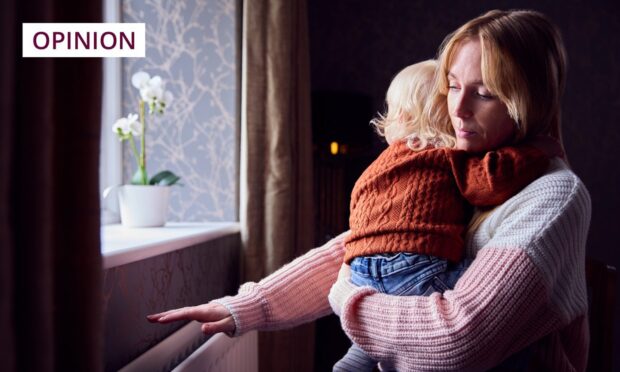Teaching poetry to teenagers can be a tricky business.
In school sessions, I used to choose poems that captured strong emotions young people might recognise and identify with. Norman MacCaig’s Visiting Hour, for example, in which he visits a loved one who “lies in a white cave of forgetfulness”, and whose “withered hand trembles on its stalk”.
It was both terrible and brilliant that word “stalk”, prompting readers to speculate silently on what ailed this woman in the hospital bed. I always imagined a cancer that ate her voraciously, like a worm in an apple, until only the stalk was left. Whatever the illness was, her pain was emotionally devastating for MacCaig. “I will not feel,” he wrote, “I will not feel until I have to.”
The contributory factors that might cause us to become physically ill are well known. Smoking. Drinking. Obesity. Pollution. Sedentary lifestyle. The public health messages surrounding five-a-day, exercise and the dangers of alcohol and tobacco have been hammered home. But October 10 is World Mental Health Day. What discussion do we have of the contributory factors to that?
Mental illness is not some abstract beast that hides, like The Bear Under the Stairs, to pounce when we are not looking. It is caused by concrete factors, just as physical illness is. Loneliness and isolation challenge burgers for their negative health effects, and if you want to find the mental health equivalent of 20 fags a day, look no further than poverty.
1 million people in Scotland live in poverty
The Joseph Rowntree Foundation estimates that more than one million people in Scotland, including 250,000 children – 60% of whom will have at least one parent working – live in “relative poverty”. Around 490,000 live in “deep poverty”, an astonishing increase of 300,000 since last year’s report. All of this makes mental illness a political issue.
Our society is mentally sick. Mental health-related calls to NHS Scotland are up 580%. NHS mental health waiting lists are gridlocked, despite the Scottish Government’s spend on mental health doubling since 2020-21. If we choose to allow our society to become as divided as it has, then we will live with the health – and financial – consequences of that decision.
When you wake each morning without the money to feed yourself or your children, to heat your home, or replace basic necessities, how could you not feel depressed and anxious? Last week, a report by children’s charity Barnardo’s highlighted that a million children in the UK share a bed or sleep on the floor because their families cannot afford beds, or to replace mouldy bed linen caused by damp homes.
“Bed poverty”, they said, reflected growing levels of destitution. Little wonder, then, that Scotland’s spending on child and young adult mental health services has doubled since 2007. The notion that childhood is a period of carefree innocence is long gone.
Life has changed for children. America’s surgeon general spoke out this summer about the “profound risk of harm” to young people from social media. Last week, it was noted that a sizeable portion of younger people in the workplace wanted to interact with screens rather than people. The solution? Pharmaceutical companies want to medicate the emotional pain of both adults and children for profit. But our society needs to address the causes of the pain rather than just the symptoms of it.
Mental illness is as urgent as physical illness
Around 12% of the European population is now diagnosed with anxiety-related disorders each year. This is not just about the effects of Covid. This epidemic of mental ill health has been a-coming for a long time.
Our world has become cold and unstable, full of fear and anger; an emotionally arid desert in which, should you stumble, the person behind simply tuts and steps on you to continue on their way. Your pain is not their pain. I will not feel, I will not feel, until I have to.
Theft, we are told, has become a major issue for retailers. The thieves are put into society’s “bad” box. Well, maybe. But we are allowing a subculture to develop in which people feel so desperate, so alienated from society, that they have no loyalty to any of the values we claim to hold dear.
Physical pain creates that chasm, but so does emotional pain. Both have causes in addition to genetics
Rishi Sunak promising to “look after” motorists at the expense of the environment (another factor in our mental health) or Jeremy Hunt declaring minimum wage will be raised from 10.42 to £11 an hour is simply cynical electioneering as their poll ratings plunge. Hurrah for the heroes of the poor? I think not.
Ultimately, one thing in MacCaig’s poem alienates him from his loved one in the hospital bed: “the distance of pain that neither she nor I can cross.” Physical pain creates that chasm, but so does emotional pain. Both have causes in addition to genetics. Smoking, drinking, eating badly? Yes. Isolation, poverty, unresolved trauma, addiction? Yes, too.
Those suffering from mental illness cannot be left languishing any more than a cancer victim can. Time for us all to start feeling.
Catherine Deveney is an award-winning investigative journalist, novelist and television presenter

